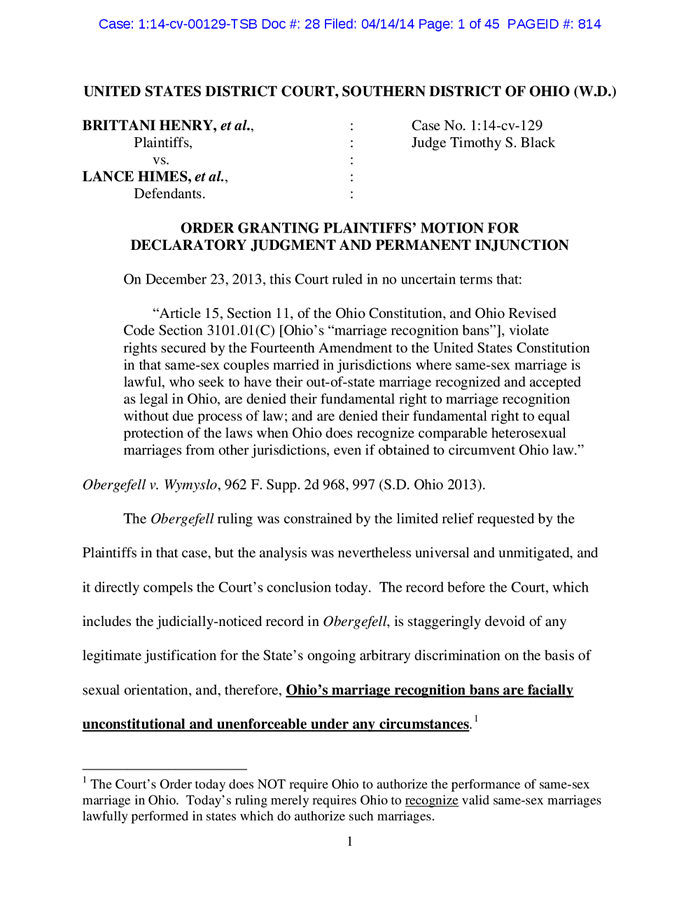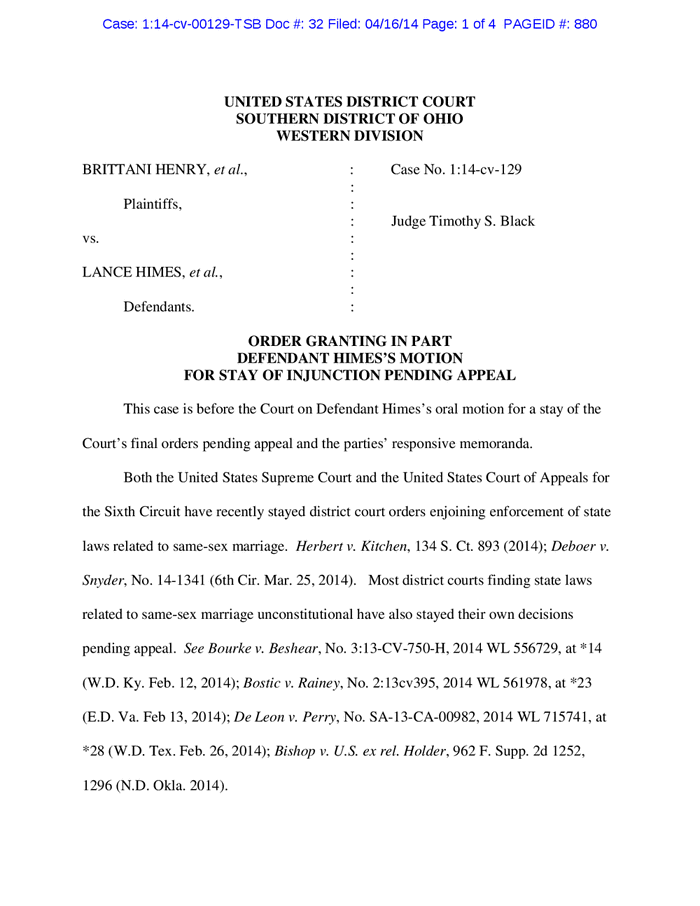WASHINGTON — U.S. District Court Judge Timothy Black on Monday ruled that Ohio's ban on recognizing the out-of-state marriages of same-sex couples is unconstitutional — a move he announced in court earlier this month that he would be taking.
"The record before the Court ... is staggeringly devoid of any legitimate justification for the State's ongoing arbitrary discrimination on the basis of sexual orientation, and, therefore, Ohio's marriage recognition bans are facially unconstitutional and unenforceable under any circumstances," the judge wrote.
Black earlier, in another case that Ohio officials appealed to the 6th Circuit Court of Appeals, ruled that the marriage recognition laws in the state were unconstitutional — but the case was limited to the treatment of death certificates.
This ruling, which related directly to treatment of birth certificates, applies to all purposes for which same-sex couples married out of state might seek recognition in Ohio.
The case does not affect the portion of Ohio's 2004 amendment prohibiting same-sex couples in the state from marrying.
The ruling is stayed, or put on hold, with Black inclined to issue a stay pending appeal as to the full recognition ruling. Black wrote, though, that he is inclined not to issue a stay "as to the as-applied claims of the four couples who are Plaintiffs because they have demonstrated that a stay will harm them individually due to the imminent births of their children and other time-sensitive concerns," but he announced in his ruling that he will be taking views from both the couples and the state on the question over the next day before deciding whether to issue a stay as to the four couples.
Update — 12:27 p.m. April 16: Judge Black did as he stated he was inclined to do, granting a stay pending appeal as to the statewide ruling on marriage recognition but denying the stay as to the four couples seeking recognition of their marriages on birth certificates.
As to the broad stay, he wrote:
While this Court believes that Defendant Himes is unlikely to prevail on the merits of his appeal, and will not be irreparably harmed by compliance with the requirements of the United States Constitution, the Court acknowledges that recognition of same-sex marriages is a hotly contested issue in the contemporary legal landscape, and, if Defendant Himes's appeal is ultimately successful, the absence of a stay as to this Court's ruling of facial unconstitutionality is likely to lead to confusion, potential inequity, and high costs. These considerations lead the Court to conclude that the public interest would best be served by the granting of a stay. Premature celebration and confusion do not serve anyone's best interests. The federal appeals courts need to rule, as does the United States Supreme Court.
As to the couples' birth certificate requests, though, he wrote, "Ohio shall issue birth certificates for Plaintiffs' children which list both lawfully married same-sex spouses as parents."
Update — 1:25 p.m. April 16: Ohio officials, in a filing with the court on Tuesday, did not oppose Black's inclination to deny a stay as to the couples, writing:
[A]lthough Interim Director Himes preserves the right to amend birth
certificates should he prevail on appeal, he does not seek a stay of any relief afforded to the individual name Plaintiffs as it relates to the issuance of the birth certificates they were granted. Rather, Interim Director Himes limits this request for a stay to relief extending beyond the individual Plaintiffs in this case.
Ohio Attorney General Mike DeWine spokeswoman Lisa Hackley confirmed to BuzzFeed on Wednesday that the state will not be appealing the denial of the stay as to the four couples.


